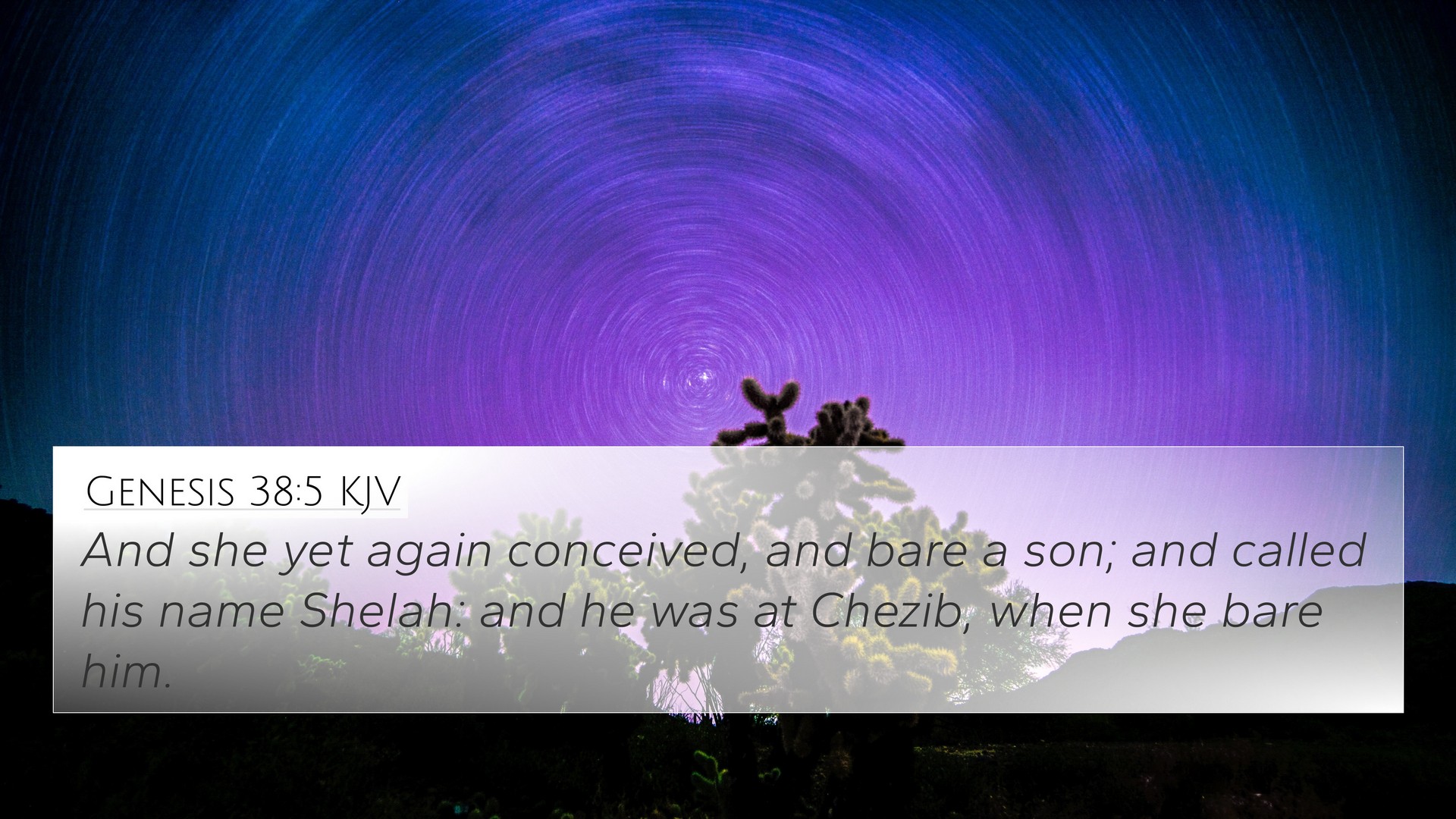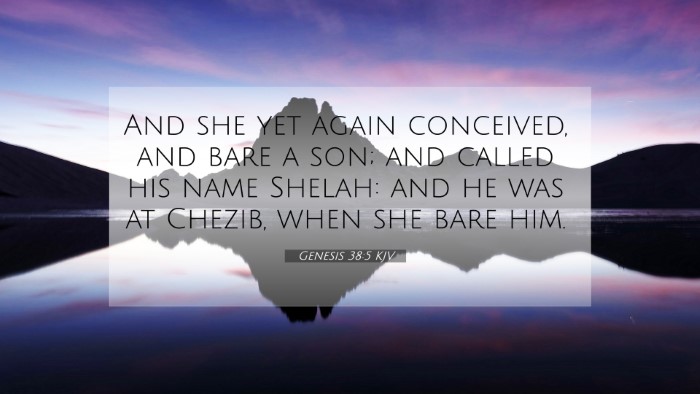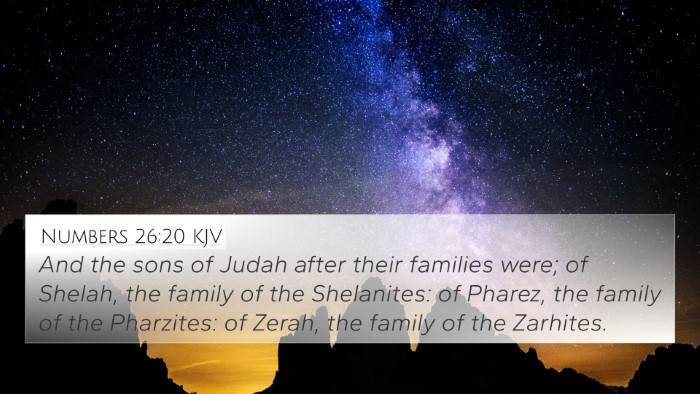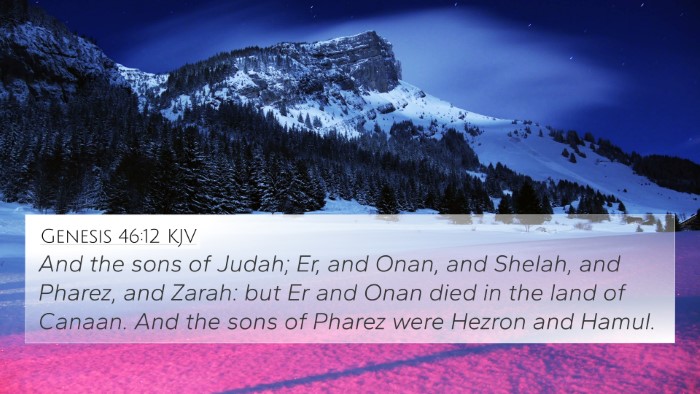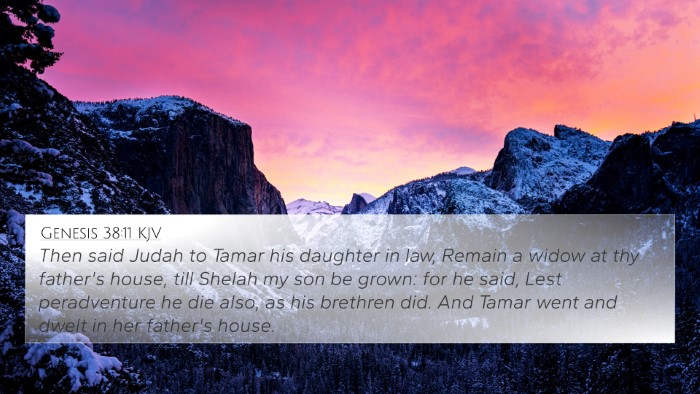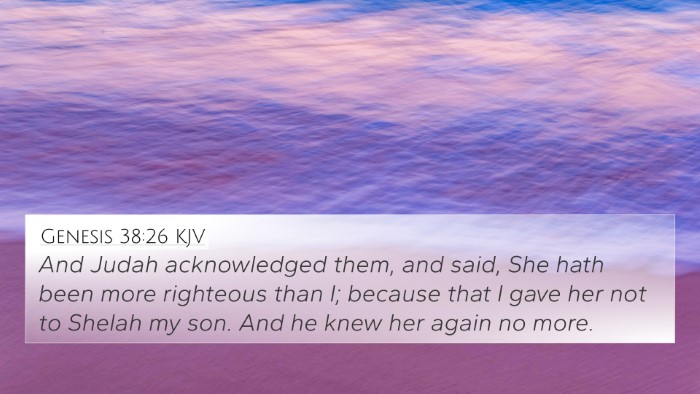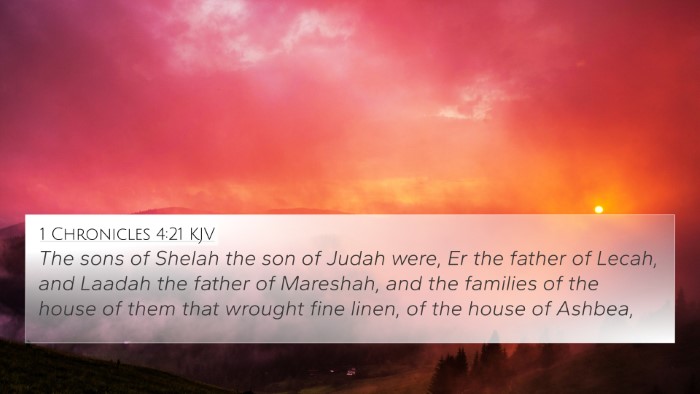Understanding Genesis 38:5
Genesis 38:5 states:
“And she yet again bare a son, and called his name Shelah: and he was at Chezib, when she bare him.”
This verse captures a critical moment in the narrative of Judah and Tamar, as it highlights the birth of Judah's third son, Shelah, and hints at the unfolding familial dynamics that are significant later in the biblical account.
Summary of Insights from Commentaries
- Matthew Henry's Commentary:
Henry emphasizes the importance of lineage and genealogy throughout the biblical text. This verse signifies the continuation of Judah's lineage, despite the turmoil surrounding Tamar's situation. Henry notes the names given to the children, suggesting a connection to the family’s moral and spiritual conditions.
- Albert Barnes' Notes:
Barnes explains that the name Shelah may indicate Judah's hope for future blessings, illustrating the theme of divine providence. He also connects this event to the broader narrative of redemption, highlighting how God works through complicated familial relationships to achieve His purposes.
- Adam Clarke's Commentary:
Clarke provides a historical context around the cultures regarding childbearing and inheritance. He notes that the birth of Shelah occurred in a significant place, Chezib, hinting at the importance of geographical location in biblical narratives. Clarke analyzes how this birth fits into the lineage leading to the Messiah.
Key Themes and Connections
This verse can be understood through several key themes:
- Lineage and Redemption: The importance of Judah's family line, through which future generations would emerge, culminating in King David and ultimately Jesus Christ.
- Divine Providence: God's sovereign hand in the unfolding story, suggesting that even amid human failings, His plans prevail.
- The Role of Women: Tamar's significant role in this narrative showcases the often overlooked contributions of women in biblical history.
Cross-References for Genesis 38:5
This verse is connected to various other scriptures that enhance its meaning:
- Genesis 38:1-2: The context of Judah's family and his decisions that lead to Tamar's predicament.
- Genesis 46:12: Shelah is mentioned as part of Judah's descendants, linking to the tribe's recognition in later genealogies.
- Ruth 4:18-22: The genealogy from Perez, Judah's son, leads to David, showcasing the significance of this lineage.
- Matthew 1:3: This verse indicates how vital Judah and therefore Shelah’s lineage is to the genealogy of Christ.
- Hebrews 7:14: References Judah as the tribe from which Jesus has come, reinforcing the importance of Judah's lineage.
- Galatians 3:29: Highlights believers being heirs with Christ, underscoring how spiritual lineage holds paramount importance in faith.
- Romans 9:4-5: Discusses the privileges of Israel's lineage, reaffirming the importance of the Old Testament narratives.
Conclusion: The Significance of Genesis 38:5
Genesis 38:5 serves as a gateway to understanding the broader narrative of God’s redemptive plan throughout the Bible. Within this verse, we see connections that thread through both the Old and New Testaments, providing a backdrop for thematic exploration such as God's providence, the role of women in biblical history, and the significance of Jesus’ earthly lineage.
